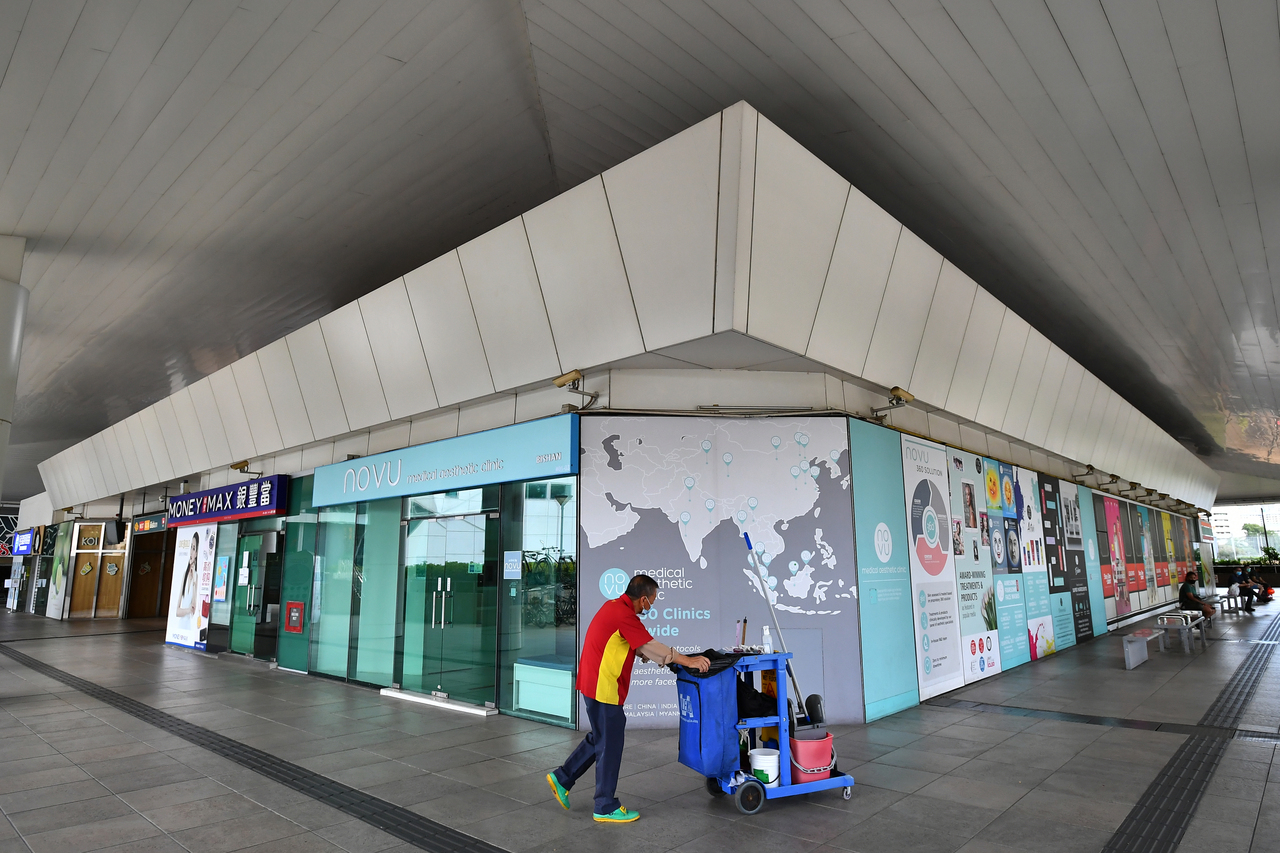Parliament: Essential service workers should enjoy better wage growth, says Zainal Sapari
Sign up now: Get ST's newsletters delivered to your inbox

Under the Progressive Wage Model, cleaners and landscape workers are currently given just two weeks' worth of bonus.
ST PHOTO: LIM YAOHUI
SINGAPORE - The current Covid-19 pandemic has opened society's eyes to the value of the work that essential service workers perform, and Singapore must change how it treats such workers in the long term, said labour MP Zainal Sapari (Pasir Ris-Punggol GRC).
This includes finding ways to ensure that the average wage growth of such workers, many of whom are in sectors that pay lower wages, continues to be higher that of workers in the median income group, Mr Zainal said in Parliament during the debate on the supplementary Fortitude Budget on Thursday (June 4).
He noted that under the Progressive Wage Model (PWM), cleaners and landscape workers are currently given just two weeks worth of bonus, while there is no such bonus for security officers.
Giving such workers an annual one-month bonus would increase their annual wage sum by 8 per cent, he pointed out, urging tripartite committees overseeing these essential services to work together to enhance the skills and wage ladders of such workers.
Sectors where the PWM has been made mandatory are also currently characterised by an older workforce, limited use of technology and relatively low productivity, he said. These include the cleaning, security and landscaping sectors. A PWM is a wage ladder that specifies higher pay for workers as they upgrade their skills.
Mr Zainal said that workers in environmental services, the landscape sector as well as security officers should be regarded as specialists, instead of being seen as low-wage workers. This can be done by improving the skills of workers in these industries, as well as finding ways to raise their productivity by tapping technology, for example. This will also help to attract a younger and higher-skilled workforce to these sectors, which could in turn raise wages in the industry.
Consumers and service buyers should also become more socially responsible, and reject service providers that provide services at low cost, but at the expense of the welfare of such essential service workers, Mr Zainal said.
Instead, service buyers should adopt an outcome-based contracting model, where contracts are awarded to companies with progressive employment practices that give due recognition to workers, rather than basing these decisions on price alone.
"This crisis has also forced us to reflect our core values and principles to fellow human beings and highlighted our unseen class system. At the same time, it also showed that we can rise to the occasion to put things right," said Mr Zainal, who noted that many more Singaporeans have became more gracious and generous towards essential service workers amid the Covid-19 crisis. Singaporeans have also helped to protect and support migrant workers here.
He called on Singaporeans to change their perceptions of migrant workers, and welcome them into their communities.
"We must realise that they are the ones who keep Singapore going; cleaners and maintenance workers who keep our neighbourhoods clean and hygienic, workers who keep our transport running so we can get our essential supplies; workers who keep electricity and water flowing to our homes, and workers who provide other services in our neighbourhoods."
Some of these migrant workers will be temporarily rehoused in vacated school sites in residential estates as part of efforts to curb the spread of Covid-19 by reducing the density of workers' dormitories. While many residents in his constituency have said that they understand the need for this arrangement, he asked if such attitudes will be the same if such temporary dormitories had to remain for a longer period.
"Do we then adopt the perverse attitude of resisting them again because we don't want them in our backyard? I hope the new normal for our foreign friends will see them being accepted as fellow human beings who have the right to enjoy the surroundings that they helped to maintain and build," said Mr Zainal.
He appealed to Singaporeans to play their part in creating a "new normal" where workers are treated in a more equitable manner after the crisis.
"If the $100 billion we have spent in this crisis does not lead us to a future where we can be more progressive, more equitable and more enlightened, then indeed it would be a tragedy if the only thing we did was just trying to survive rather than coming out stronger as a society."


